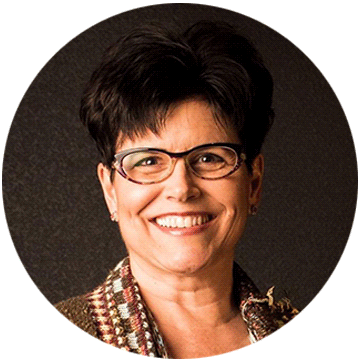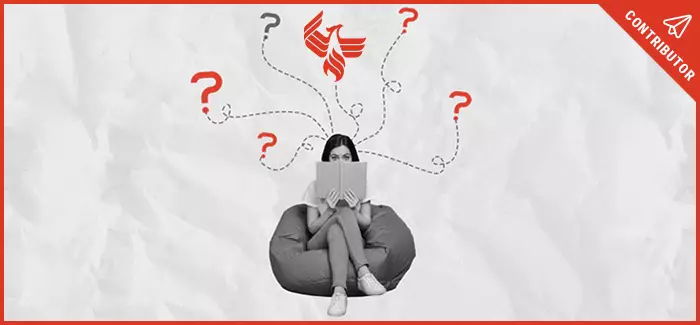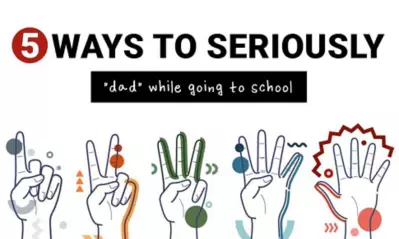Is University of Phoenix legit and accredited?
This article was updated on June 4, 2024.

Written by Laurie Davies

Reviewed by Marc Booker, PhD, Vice Provost, Strategy

University of Phoenix was established in 1976, but even with its long history, some wonder if an online college with a mission to meet the needs of working adults offers the same caliber of education as traditional brick-and-mortar schools. In many ways, it does. Still, when scrolling the web, you might come across questions like “Is University of Phoenix legit?” or “Is a University of Phoenix degree respected?”
Is University of Phoenix legit?
These are the same questions critics were asking almost 50 years ago when John Sperling created a university designed for working adults.
Sperling didn’t make getting a degree easier, but he made the process more accessible through class times and course loads that made sense for working adults. That didn’t stop critics from asking questions, but it did change the face of higher education for a group of students who did not otherwise have a clear pathway to an academic degree.
One of the first places to look when answering the question of institutional legitimacy may be an institution’s accreditation status. Accreditation is an independent evaluation of educational quality and rigor. For students who attend accredited institutions, this means they’ll pursue an education that meets recognized quality standards as evaluated through a peer-reviewed process.
University of Phoenix holds institutional accreditation. In fact, University of Phoenix is accredited by the Higher Learning Commission (hlcommission.org), an institutional accreditation agency recognized by the U.S. Department of Education. University of Phoenix has been continually accredited by the Higher Learning Commission since 1978.
The Higher Learning Commission has a variety of criteria for its accreditation standards, including:
- Mission
- Integrity: Ethical and Responsible Conduct
- Teaching and Learning: Quality, Resources, and Support
- Teaching and Learning: Evaluation and Improvement
- Institutional Effectiveness, Resources and Planning
Additionally, some University of Phoenix programs carry specialized (or programmatic) accreditation. Programmatic accreditation represents a separate, external peer evaluation and quality assurance that applies to specific programs within an institution.
How does University of Phoenix serve nontraditional learners?
Many of UOPX’s students have been learning through life experiences well before taking their first postsecondary class. Whether you are a working parent, military service member, or a professional who wants to reenter the workforce, change careers or upskill, University of Phoenix offers a way to meet your educational goals — while still balancing life, family and work.
Many University of Phoenix students are first-generation college students, and the average age of new students is 38. Statistically:
- More than half report as ethnic minorities
- 7 in 10 students are women
- Nearly 8 in 10 are employed
- More than 6 in 10 have dependents
These statistics illustrate that many of the University’s students have different needs from the average 18- to 22-year-old traditional college student. As an institution, UOPX has responded accordingly, with:
- A teaching model informed by andragogy (the study of how adults learn)
- An enrollment policy that helps remove barriers to education
- A nontraditional calendar with course start dates throughout the year
- Degree programs that allow students to take one course at a time in a compressed five- to six-week format
- Access to career resources through its Career Services for Lifetm commitment, including access to one-on-one career coaching appointments at no additional cost
- Trained academic counselors (ACs)
- A Life Resource Center that offers confidential clinical counseling, life coaching and online resources at no additional cost to help students navigate the challenges of life
Additionally, the University has implemented specialized ACs who work with specific student groups like military service members and their spouses as well as tribal students to help navigate their unique needs.
Experienced practitioner faculty
Real-world success often depends on real-world experience. University of Phoenix students are taught by practitioner faculty who hold advanced degrees and who are accomplished professionals in their areas of expertise. In fact, they bring, on average, almost 30 years of professional experience and more than 16 years of University of Phoenix teaching experience to the table. Two in 3 University faculty members are in leadership roles.
Since University of Phoenix faculty work in the industries that they teach, these faculty members know firsthand what skills adult learners need in order to be relevant and competitive at work. They also know how to translate theory into skills so students can apply them at work right away.
The approach is paying off: According to a 2022–23 survey, 85% of responding University of Phoenix students recommend their instructors*.
Rigorous, relevant online learning
Using labor analytics data, advisory board input, and academic and faculty insights, University of Phoenix ensures its programs align to specific, in-demand skills — arriving at a truly innovative way of connecting curriculum to careers.
This is helping both students and employers address the well-documented skills gap that is emerging in the American workplace.
Career-focused education
As employers continue to focus more intently on skills, UOPX is helping students learn skills that they can add to their resumés in weeks rather than years, offering value before students even graduate.
University of Phoenix began offering digital badges through Credly for select courses in 2022 and 2023, allowing students to showcase their earned, career-relevant skills on their resumés or LinkedIn® profiles in real time.
Additionally, in 2023 the University launched the Career Navigator platform, which helps students learn about careers, track their skills in one handy profile, and explore job postings relevant to their most recent program of study.
These represent the ongoing effort of the University to provide working adults with an education that brings value to the job market.
5 reasons why UOPX could be a good fit?
OK, so UOPX is a legit university. But is it right for you? Here are five reasons it might be a good fit for you.
1. Your life experience matters
Through Prior Learning Assessment (PLA) and Credit for Prior Learning (CPL) services at University of Phoenix, learning from life experiences can be evaluated for potential credit. The University works with students to help evaluate their experience — everything from parenting experience to past jobs — to help them earn the college credits they deserve from things that they may have learned.
For every three credits a student earns through PLA, students can shave one course; which equates to three credits, five weeks and almost $1,200 off a bachelor’s degree.
In 2023, students with eligible PLA credits and relevant experience saved, on average, $3,842 on their undergraduate degree.
2. Student-centered admissions process
Unlike other universities, University of Phoenix does not charge an application fee. You can apply for free, and no entrance essay or exam is required (e.g., SAT, ACT, GMAT or GRE). There’s also no obligation to start your program if you are accepted. Plus, you can apply for PLA (mentioned above) at no additional cost.
To apply to University of Phoenix undergraduate programs, you’ll need to meet its admission requirements:
- You must be a U.S. citizen or permanent resident, or have a valid visa if you’re living in the U.S.
- You must have a high school diploma, GED or foreign equivalent
- You must meet English language proficiency criteria
- Some programs have additional requirements (like work experience)
University of Phoenix’s enrollment representatives can guide you through the process.
3. The University helps students save time and money
University of Phoenix helps students save time and tuition with PLA/CPL (covered above), transfer credits, scholarships and more.
- Transfer credits: If you’re considering a transfer to University of Phoenix, an enrollment representative can help you understand your credit transfer options. The University will request your prior college transcripts at no charge, whenever possible. University of Phoenix also accepts transfer credit from many international institutions, and reviews military service and relevant work experience for potential credit. Additionally, the University considers credits for CLEP, AP, DANTES and other testing scores for college credit. The University’s Savings Explorer® tool can help students or prospective students see how learning from work, life and school experiences might help save on tuition.
- Scholarships: University of Phoenix believes everyone deserves an affordable education that they shouldn’t have to compete for. That’s why the University embraces an egalitarian approach to scholarships. Starting with your first course, every qualifying new student will be awarded one of the University’s scholarships, or you’ll get a better offer you qualify for (provided you maintain eligibility).
- Fixed tuition: At University of Phoenix, students have one flat rate from the moment they enroll until the day they graduate from their program. They can count on predictable and transparent tuition through the University’s Tuition Guarantee.
- Competency-based programs: The University offers a specific group of faculty-supported, self-paced programs that allow working professionals to leverage their knowledge and experience to earn a degree faster and for less.
4. University of Phoenix is flexible, helping students balance school and life
University of Phoenix first offered online classes in 1989, so it has a deep understanding of what works with online learners. Built for busy adults, the University emphasizes flexibility through such options as:
- A flexible course calendar format: The University offers up to 20 opportunities a year to start a bachelor’s degree and up to 17 opportunities a year to start a master’s
- Freedom for students to learn when they want with 24/7, online classrooms
- Single courses that generally last 5 or 6 weeks rather than multiple courses taken concurrently that span a traditional semester
These flexible options often appeal to nontraditional learners, who are generally balancing work, dependents and other life demands.
5. Skills-mapped curriculum leads to career-relevant skills in weeks — not years
University of Phoenix is bridging the gap between the classroom and the workplace by aligning degree programs and courses to skills employers want. This is called skills-aligned learning, or skills mapping.
The skills-mapped curriculum journey looks like this:
1. The University works with labor market analysts in evaluating thousands of job posts to identify skills today’s employers want in job candidates.
2. Those skills are embedded into University programs.
3. The University aligns credits to skills in a 1:1 ratio across required courses of study. This means, on average, for every three-credit core course a student takes, the student can demonstrate three career-relevant skills.**
4. Students are assessed with real-world assignments (called authentic assessments) tied to those skills.
5. The University helps students keep track of skills they have demonstrated through a personalized skills profile.
6. In select courses, students are awarded digital badges for the skills they demonstrate. This helps them showcase their skills right away on their social profiles.
Watch this video to learn more about the skills-mapping process.
In July 2023, University of Phoenix announced that 100% of the associate, bachelor’s and master’s degree programs open for new enrollment were fully skills-mapped.
Why UOPX is a great choice for adult learners
With accreditation, academic rigor, practitioner faculty, skills-aligned curriculum and a deep knowledge of how to serve adult learners, UOPX has plenty to offer students, whether you’re a full-time parent who wants to earn a degree, a veteran, or a first-generation college student.
If you decide UOPX is right for you, you won’t be alone: University of Phoenix has been a good choice for 1 million alumni and growing.
Explore our academic calendar and upcoming start dates.
*Transactional Survey, September 2022–August 2023 (23,739 respondents)
**Throughout UOPX’s general education curriculum, skills are aligned at the course level rather than at the credit level.

ABOUT THE AUTHOR
A journalist-turned-marketer, Laurie Davies has been writing since her high school advanced composition teacher told her she broke too many rules. She has worked with University of Phoenix since 2017, and currently splits her time between blogging and serving as lead writer on the University’s Academic Annual Report. Previously, she has written marketing content for MADD, Kaiser Permanente, Massage Envy, UPS, and other national brands. She lives in the Phoenix area with her husband and son, who is the best story she’s ever written.

ABOUT THE REVIEWER
Dr. Marc Booker, University of Phoenix Vice Provost for Strategy, has more than two decades of experience working with online and distance education students at the post-secondary level. He currently oversees critical path academic initiatives to improve the student experience. Dr. Booker is a regular speaker, author and contributor to national higher education associations.
This article has been vetted by University of Phoenix's editorial advisory committee.
Read more about our editorial process.
Read more articles like this:


